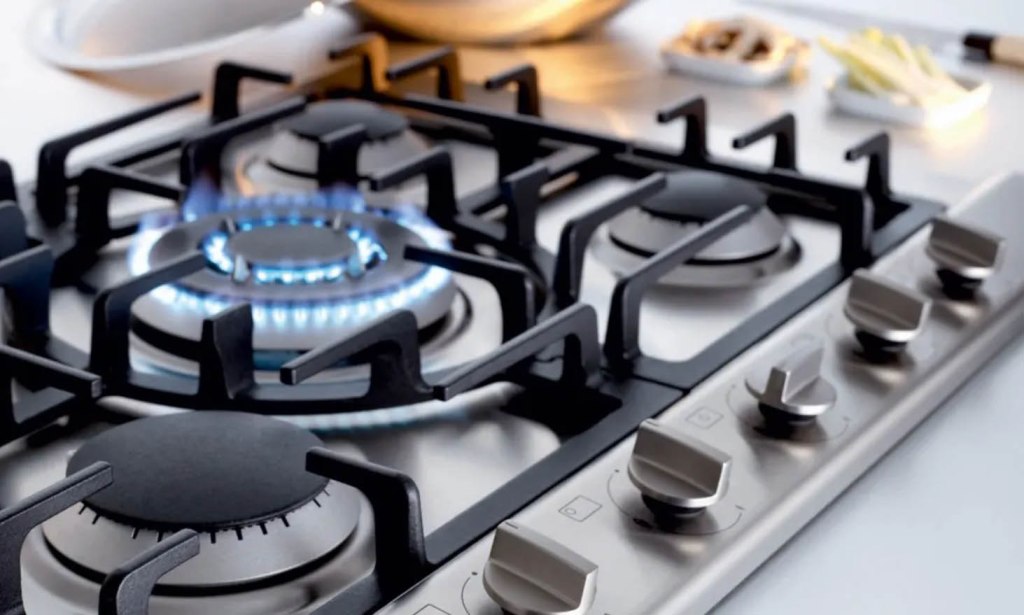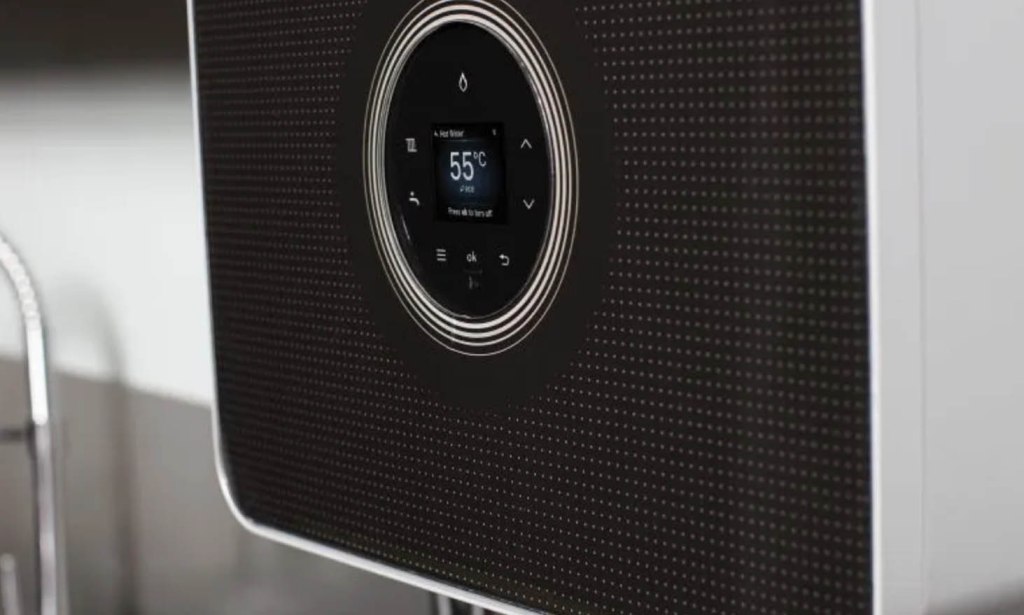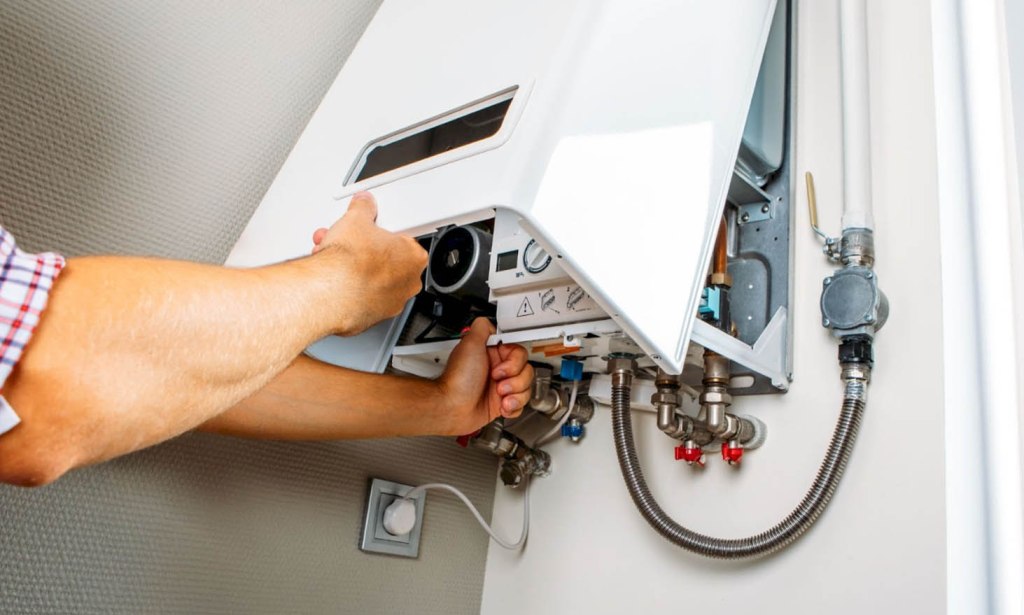-
Understanding the Importance of a Gas Safety Certificate

Whether you’re a landlord, homeowner, or tenant, it is crucial to have a clear understanding of what a Gas Safety Certificate entails and why it is significant.
We are here to provide you with comprehensive information about this certificate and its importance. Let’s walk through everything you need to know!
What is a Gas Safety Certificate?
A Gas Safety Certificate is an official document that confirms a property’s safety for the use of gas appliances. It is issued after a thorough inspection by a Gas Safe Registered heating engineer.
Our team of gas engineers will conduct all the necessary safety checks and tests to ensure that your property complies with British gas safety regulations and is safe to use. Once the inspection is completed successfully, a certificate will be issued, demonstrating that your property is gas-safe.
Why is a Gas Safety Certificate important?
The Gas Safety Certificate holds significant importance for landlords, homeowners, and tenants alike. It ensures that all gas appliances in your property are working safely and efficiently, eliminating the risks of carbon monoxide poisoning and gas leaks.
What does the inspection cover?
Our Gas Safe registered engineers will conduct a thorough inspection of all gas-powered appliances and fittings in your property. This includes gas boilers (conventional, system, and combination), gas fires, chimneys, gas pipework, flues, and other relevant items.
All fittings and appliances are inspected according to the recommended frequency specified in the manufacturer’s handbook for each device.
Are Gas Certificates necessary?
For Landlords: If you are a landlord of any residential property, hotel, caravan site, pub/restaurant, or similar establishment, you have a legal responsibility for the safety of your tenants. Failure to provide an up-to-date Gas Safety Certificate (within 1 year) can lead to prosecution.
It is crucial to keep a record of this certificate for at least 2 years to demonstrate compliance with regulatory bodies that may require it. Additionally, the certificate should be provided to new tenants immediately or within the first month of their tenancy.
For Tenants: UK law mandates that all gas appliances provided in a property must be inspected for safety. However, tenants themselves are not required to have them checked by a gas engineer.
If you are a tenant and your landlord has not provided you with an up-to-date gas safety record or certificate, it is important to contact them immediately and request one.
For Homeowners: As a homeowner, you are not legally obligated to obtain a gas safety certificate. However, it is strongly recommended to have your property professionally inspected.
You can accomplish this by scheduling an annual boiler service or a gas safety check by contacting us here.
Having a Gas Safety Certificate provides peace of mind, ensuring the safety and efficiency of your gas appliances.
Whether you’re a landlord, homeowner, or tenant, it is essential to prioritize gas safety for the well-being of everyone in the property.
-
Essential Steps for Preparing Your Space for a New Boiler Installation

Properly preparing your space before installing a new boiler in your home is crucial for a smooth installation process and optimal performance of your new equipment.
To help you with the preparations, here are some important steps to follow:
Clear the area
Ensure that the area around your old boiler is clean and free of any objects or obstacles. This will provide the installation engineer with ample space to work and maneuver around the boiler.
Turn off the power
Prior to the installation, switch off the power to your old boiler by flipping the circuit breaker that controls its electrical supply. This precaution ensures safety for both you and the technician during the installation process.
Shut off the water
Locate the shut-off valve near your old boiler and close it to stop the flow of water. This step reduces the risk of water leakage while the installation is taking place.
Drain the system
Once the power and water supplies have been turned off, it’s necessary to drain the old boiler. This allows the installation engineer to safely disconnect the old unit without any leaks. Connect a hose to the drain valve near the base of the boiler, open the valve, and let the water completely drain out.
Prepare the area for the new boiler
After removing the old boiler, the engineer will prepare the area for the installation of the new unit. This may involve cleaning the area, repairing walls or flooring, and installing any necessary new pipes or wiring.
Install the new boiler
The engineer will proceed with installing the new boiler, connecting it to the existing wiring and pipes. They will then test the unit to ensure it is functioning optimally.
Test the system
After installation, the technician will conduct thorough testing of the new boiler. This includes checking its heating efficiency, inspecting for any leaks, and adjusting the settings as needed.
Dispose of the old boiler
Your engineer will take care of properly and safely disposing of the old boiler, relieving you of the burden of removing it yourself.
By following these instructions, you can effectively prepare your space for a boiler installation and ensure a smooth process.
If you have any questions or concerns, don’t hesitate to reach out to us for advice and assistance. We are here to help you make the most of your new boiler.
-
Important Tips for a Successful Boiler Installation

When it comes to new homeowners, installing a boiler is a task of utmost importance.
Although it may seem complex, proper knowledge and preparation can ensure a smooth and efficient installation process.
To help you with your boiler installation, here are some essential tips:
Conduct thorough research and select the right boiler
Before starting the installation, it is crucial to research and choose the boiler that best suits your home. Factors such as property size, number of occupants, and heating requirements should be taken into consideration. There are various types of boilers available, including combi boilers, system boilers, and regular boilers. Each type has its own advantages and considerations based on the size of your home and the number of occupants.
Hire a professional installer
Installing a boiler is not a do-it-yourself project. It requires specialized knowledge and expertise, so it is essential to hire a qualified engineer, particularly one who is Gas Safe Registered. Hiring experienced heating engineers with a good reputation is important. Reading online reviews and seeking recommendations can help you find the right professional for the job.
Only professionals have the necessary skills to install the boiler correctly, adhere to safety regulations, and provide any required certifications.
Plan the installation location
The positioning of the boiler is important for both functionality and convenience. Ideally, it should be installed on an external wall to ensure proper ventilation and flue installation. Consider accessibility for maintenance and future repairs as well. Discuss the location with your engineer to determine the most suitable spot.
Check for necessary permissions
Depending on your location and property type, you may need to obtain certain permissions or permits for the boiler installation. Checking with local authorities or building regulations will ensure compliance. Failure to do so can lead to legal issues or potential problems when selling your property in the future.
Upgrade your heating controls
Installing a new boiler provides an opportunity to upgrade your heating controls for improved energy efficiency. Consider installing programmable thermostats, smart controls, or zoning systems that allow independent control of heating in different areas of your home. These upgrades will help you save energy and reduce heating bills in the long run.
Prepare your home
Prior to the installation day, ensure the area where the boiler will be installed is clear. Remove any obstructions and create enough space for the installer to work comfortably. Also, protect nearby furniture or belongings that may be exposed to dust or debris during the installation process.
Schedule regular maintenance
After the boiler installation, regular maintenance is essential to ensure its longevity and efficiency. Scheduling regular servicing by a qualified engineer can help identify and resolve any issues early on, saving you from costly repairs in the future. Maintaining a record of the service history can also be valuable for warranty claims or when selling your property.
By following these tips, you can minimize disruptions to your everyday life and ensure your boiler runs smoothly. Safety should be a priority, so consult professionals to make informed decisions throughout the process.
A well-installed and maintained boiler will provide reliable heating and hot water for years to come.
-
The Benefits of Investing in a New Boiler

Boilers are essential for maintaining warmth and comfort in our homes and workplaces.
However, as time passes, these systems can lose efficiency and become prone to breakdowns. This article aims to provide the necessary information to help you make an informed decision about replacing your outdated boiler with a more suitable option that meets your needs.
By discussing the impact of age on efficiency, signs indicating the need for a replacement, and the long-term cost savings, we’ll highlight why upgrading your boiler is worth considering.
If your current boiler is exhibiting inefficient heating, frequent breakdowns, or unusual noises, it may be nearing the end of its lifespan. Investing in a new boiler can prevent costly repairs or a complete system failure in the future.
Advantages of Investing in a New Boiler:
- Efficiency and Energy Savings: Upgrading to a modern, energy-efficient boiler offers numerous benefits. Older models tend to have lower efficiency levels, resulting in higher utility bills. By switching to a newer boiler, you can significantly reduce energy consumption and save money in the long run. These advanced models maximize heat output while minimizing fuel waste, leading to substantial savings on energy costs.
- Environmental Impact: In today’s environmentally conscious world, it’s crucial to consider the ecological consequences of our choices. Outdated boilers are notorious for higher emissions and contributing to air pollution. By replacing your old boiler with an eco-friendly model, you can contribute to a cleaner environment. Modern boilers incorporate advanced technology that reduces emissions and ensures efficient combustion, making them environmentally responsible choices.
- Enhanced Heating Performance: Outdated boilers often emit significant emissions, adversely affecting air quality. Upgrading to a more environmentally friendly boiler allows you to reduce your carbon footprint and make a positive contribution to a cleaner environment. Contemporary boilers are equipped with cutting-edge technology that limits emissions while guaranteeing efficient combustion, improving overall heating performance.
- Long-Term Cost Savings: Investing in a new boiler installation in Glasgow is a significant financial decision that yields long-term benefits. Modern boilers are more efficient and require less maintenance over time, resulting in savings on costly repairs and maintenance fees. Additionally, many manufacturers offer warranties, providing further peace of mind. If you plan to sell your property in the future, upgrading your boiler can substantially increase its value.
- Government Incentives and Rebates: Exploring government incentives and rebates when replacing your boiler is a prudent step. Numerous local governments offer programs that promote energy-efficient systems, including boilers, which may include tax credits, financial aid, or rebates. Investigating the available assistance in your locality ensures you don’t miss out on potential savings.
Investing in a new boiler offers multiple advantages.
By replacing your outdated boiler with a modern, energy-efficient model, you can enjoy improved heating performance, reduced power consumption, and long-term cost savings.
Additionally, you’ll contribute to a cleaner environment while potentially benefiting from government incentives that help offset the cost.
-
The Pros & Cons of Combi Boilers

Combi Boilers A combi boiler (combination boiler) is an all-in-one unit that instantly provides heat and hot water without installing a separate hot water tank.
These boilers are considered the most efficient and can save you money on your energy bills. However, not every home will be suitable for this type of boiler, so understanding the pros and cons will help you make the right choice.
What are the Pros of a combi boiler?
1. Faster and provide hot water on demand.
The main advantage a combi boiler offers homeowners is the immediate supply of hot water without waiting for it. They don’t require an immersion heater or tank, which means they are also easier to install and a cheaper option for households.
2. Cheaper and more energy efficient
A combi boiler can save you money because heated water is not left inside a tank, which could go unused and cause you to consume more energy unnecessarily. A combi boiler can increase your home’s EPC (Energy Performance Certificate) rating – a huge selling point for future buyers or investors.
3. Cleaner and easier to service
A central heating system with a combi boiler will mean you won’t need to worry about rust, debris or sludge building up as no water is not left in a tank; instead, water is channelled directly from the mains.
Most engineers are trained on how to service and repair combi boilers due to how popular they have become, and it’s easier to find help when you need it.
4. More Compact
As there is no requirement for a water tank, combi boilers gift homeowners more space in their loft area, which can be converted into a living space without the unsightly view of a water tank.
The Disadvantages of a Combi Boiler
1. Restricted use
Of course, there are downsides to a combi boiler, which may not suit households with large families or homes with more than one bathroom. For example, you can only access hot water from one source at a time, which means that when one person takes a shower, you will not have access to hot water anywhere else in the house.
2. No Immersion Heater
As there is no immersion heater, you instantly lose access to hot water unless you have an electric shower if your boiler breaks down.
3. Heavily reliant on Mains Pressure
You will also have to consider how strong the mains pressure is in your geographical area, as combi boilers perform better with stronger pressure.
4. No option for a Power Shower
A combi boiler also means you can’t install a power shower because the mains configure the pressure, and there’s no option for adjustments.
Overall, if you live in a house with limited space, have a small family, or a couple, then a combi boiler is ideal.
This post was written in conjunction with The Boiler Exchange who provide new boiler installations in Glasgow and surrounding areas.
-
Subscribe
Subscribed
Already have a WordPress.com account? Log in now.